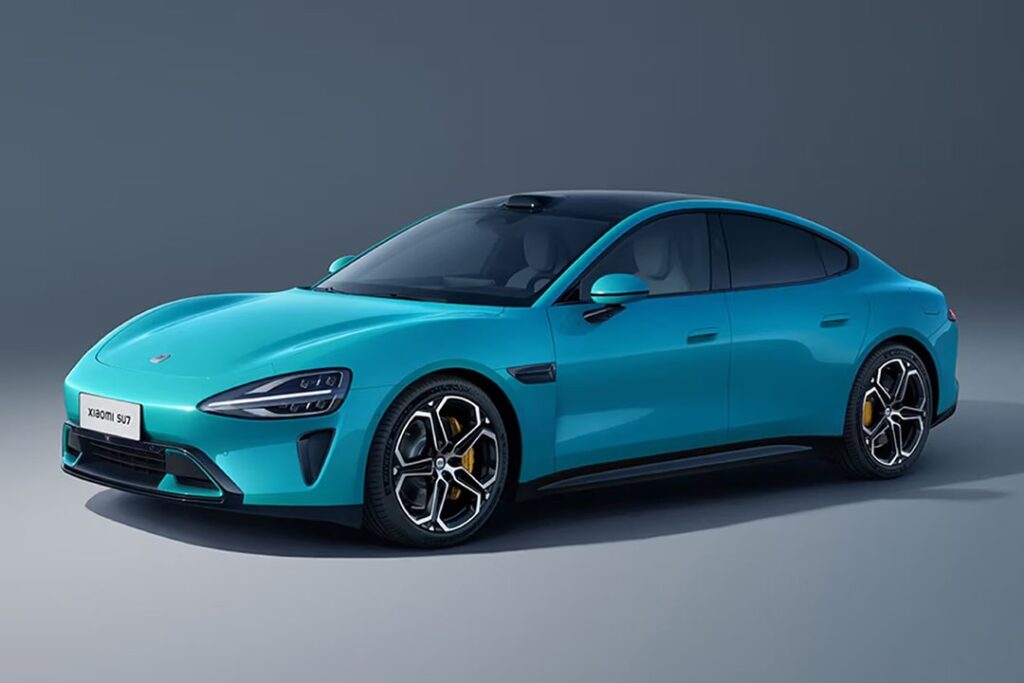In February this year, after considering industry insiders’ advice to set a monthly sales target of 3,000 units, Lei Jun made a bold decision: Xiaomi would produce 76,000 units annually of its new SU7 electric vehicle model.
By May, Xiaomi’s factory ramped up production, increasing the annual target to 100,000 units. Come July, Xiaomi accelerated again, announcing it could meet the 100,000-unit annual delivery target by November.

The SU7, initially underestimated, became a phenomenon in just six months. During this period, Lei frequently trended on social media, including for personally opening the car door for the first SU7 owner and visiting the Beijing Auto Show. Often, Lei’s public acts overshadowed the product itself.
In his annual speech on July 19, Lei addressed these actions, explaining that most were unintentional. He attributed his “marketing genius” label to the immense success of the SU7.
Throughout the two-hour speech, determination and participation were repeatedly highlighted as the prerequisites for the SU7’s success.
Lei recounted that, in January 2021, Xiaomi faced US sanctions. After proposing the idea of manufacturing cars in a board meeting, he formed a six-person research team. Over 70 days, they visited more than ten cities, interacted with over 200 industry insiders, and held four executive meetings. William Li and He Xiaopeng, CEOs of Nio and Xpeng Motors respectively, also advocated for Xiaomi to enter the automotive industry.
As the research deepened, Lei realized that smart EVs are an inevitable trend. At a critical juncture of integrating the automotive and consumer industries, Xiaomi, being one of the most established companies, had to build cars.
In response to doubts about entering the market too late, Lei said that the automotive industry is a century-long race. As long as there is genuine passion and commitment, any time is the best time. From inception to the launch of the SU7, Lei continually set new benchmarks for his involvement in the new business.
As a newcomer to the industry, Lei placed great importance on the first product. During the market research phase, he said, “A hundred reports can’t replace a face-to-face interview with a real user.” Lei and his team spent less than a month engaging in face-to-face conversations with over 300 of Xiaomi’s engineers. “But we felt it wasn’t enough, so we went to Xiaomi’s parking lot and checked out what cars everyone was driving.”
Building a good car takes passion
How to build a good car? Lei’s answer is simple: first, fall in love with cars yourself.
Over the past three years, Lei Jun has test-driven more than 170 cars. Besides experiencing cars as a customer in stores, he also explored new models in the company garage, borrowing employees’ cars to test. Additionally, he read biographies of automotive giants and watched car racing movies.
Believing that only by understanding cars can one build good cars, Lei set a new goal for himself: “Can I become the best driver among all the automotive company bosses in China?” To find out, Lei obtained a racing license, alongside 100 of Xiaomi’s automotive management-level engineers.
During the SU7’s development, Lei participated in winter tests, summer tests, and a series of road tests. The widely praised sun protection and heat insulation performance was a result of Lei’s experience in summer tests conducted in Turpan.
However, the SU7 was not expected to perform well before its launch. Anticipating that BBA (BMW, Mercedes-Benz, and Audi) users wouldn’t buy the SU7, and that female users were less interested in performance-focused cars, Lei’s consultants suggested a monthly sales target of 3,000 units.
In February 2024, the SU7 began mass production, with Lei setting an annual production target of 76,000 units. This meant that, excluding the ramp-up time, Xiaomi had to sell over 10,000 units of the SU7 per month. Additionally, the factory’s storage could only accommodate three days’ worth of produced vehicles. If the SU7 didn’t sell well, dealing with inventory would be a major issue for Xiaomi.
After the SU7 was launched, orders exceeded 10,000 within four minutes and surpassed 50,000 in 27 minutes. Lei recalled, “At that moment, all the grievances and misunderstandings of the past three years no longer mattered.”
KrASIA Connection features translated and adapted content that was originally published by 36Kr. This article was written by Xu Caiyu for 36Kr.
